Is it just a kid’s dream to have a pool in their backyard? Many adults dream of having a swimming pool too, but when you’re all grown up, you realize there’s a lot more to think about besides, let’s put in a pool. Some questions you’ll be asking are;
-
Is a saltwater or chlorine pool system better?
-
How much does pool maintenance cost?
-
What are the overall advantages of a saltwater pool vs a chlorine pool?
There are many differences between the two types of water sanitation systems and here at 999 Developments, we believe that one system is better compared to the other.
A Common Misconception of Chlorine and Saltwater Pools
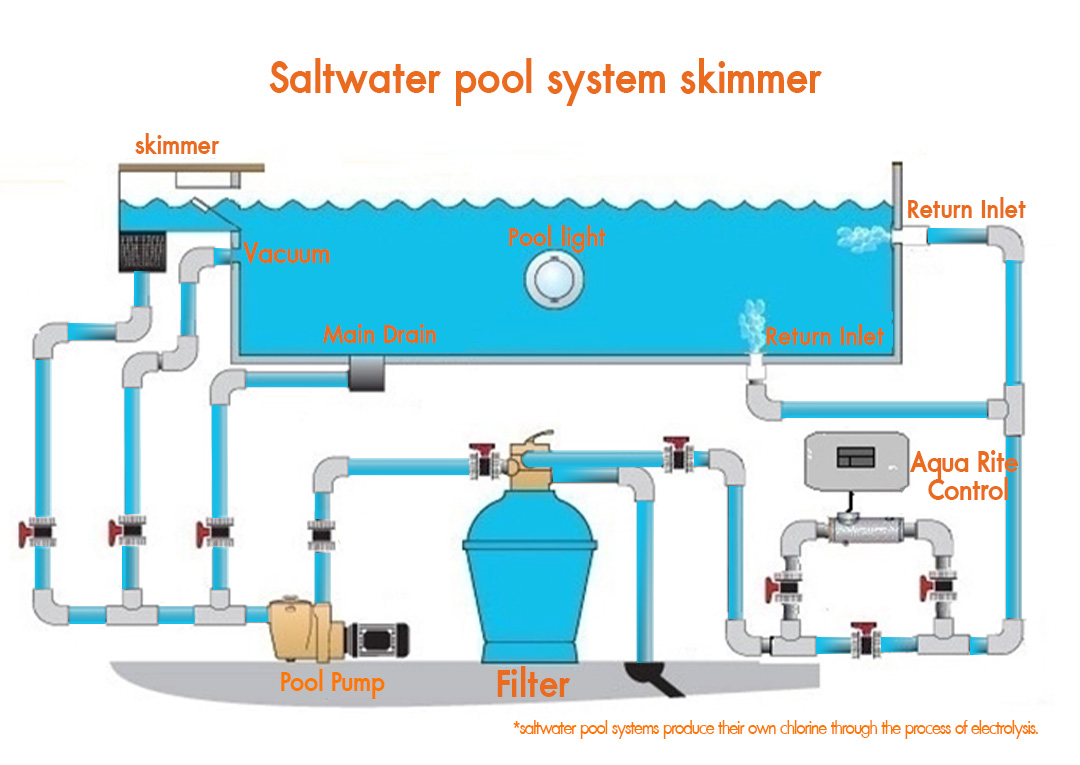
It’s important to get this information out of the way first. Did you know that saltwater pools also have chlorine?! The majority of people believe that because it’s called a saltwater pool, that uses mainly a salinated system. In fact, saltwater pools contain about the same amount of salt as human tears (which is about 1/10 the salinity of ocean water). This is why it’s possible to open your eyes underwater, and when you get out of the pool, your skin feels smoothers and softer.
Saltwater pools also, surprisingly to some, have chlorine in them. In fact, saltwater pool systems produce their own chlorine through the process of electrolysis.
How does a saltwater pool system create chlorine? First, you need to add pool grade salt to the chlorine generator. The generator will then run the salinated water through two electrically charged plates which convert it to chlorine.
Chlorine is necessary to sanitize the pool water, but the chlorine amount produced, is a much lower amount compared to a chlorine pool system because the chlorine is produced at a steady level. This significantly lower level of chlorine results in reduced respiratory issues, no burning swimmer’s eyes, or awfully strong smells. It also means your swimsuits and towels will last longer.
This explains why saltwater pools are often preferable among people with sensitive skin, allergies or asthma.
Safety Issues

You’ll need a safe place to store the chemicals for either a saltwater or chlorine pool. Pool grade salt should not be ingested as it contains impurities and should be kept locked away from small children. Other than that, pool grade salt is quite safe.
Chlorine, on the other hand, is a dangerous chemical. You can purchase liquid or powder chlorine, although the powdered form is more popular as it’s easier to use and easier to store. Chlorine becomes acidic when it’s mixed with water. When it’s mixed you’ll notice the overpowering chemical smell, possibly feel burning skin, itchy skin, or get dry skin. People with allergies or respiratory issues may also have a reaction.
Chlorine, in liquid or powder form, should be kept in a cool, dry, and well-ventilated location.
How Long do Saltwater Pools and Chlorine Pools Stay ‘Clean’ For?

The great thing about saltwater pools is that they remain ‘clean’ for up to 2 weeks. This means that salt needs to be added biweekly. Chlorine systems, however, need to be ‘cleaned’ every week. This means that chlorine tablets or sticks, need to be added weekly
Maintenance Costs of a Saltwater Pool vs a Chlorine Pool

Maintenance of your pool comes at the cost of time and money. One type of pool system is significantly more costly than the other.
Time Costs
Both types of pools will need their chlorine levels checked on a regular basis to ensure levels remain within a safe range. Too much or too little chlorine can result in a plume of algae or a green pool. Chlorine levels need to be checked daily, while saltwater pools can be checked every few days.
A saltwater pool’s chlorine can be adjusted at the generator, while with a chlorine system you must adjust the amount of chlorine by physically adding it to the pool.
‘Shocking’ the Pool
Chlorine pools require ‘shocking’ more often. This involves dissolving a larger amount of chlorine in a bucket of water and adding it slowly to the pool. You’ll have to really know what you’re doing, or hire a pool expert.
A saltwater pool needs to be ‘shocked’ far less often usually after heavy rain.

Chemical Costs to Run Your Pool
A saltwater pool can offer significant monetary savings. It only costs about $100 (3,400 Baht) to purchase the required salt and chemicals (if you take good care of your pool.)
On the other hand, a chlorine pool can cost between $300 and $800 (10,200 – 27,400 Baht) per year in chemicals.
Keep in mind that both types of pools will require more chlorine in warmer climates such as Thailand. One downside of this for a saltwater pool is that the generator will use more electricity, which will result in increased energy bills. Also, the cells will wear out faster and need to be replaced every 2-5 years. A new generator cell will cost between $200 and $700 (6,800 – 24,000 Baht).
Electricity Costs
Both pool systems use a pump and filter process, but a saltwater pool also requires a generator. It’s suggested that in a hot climate such as Thailand, the generator run between 10-12 hours per day, or more depending on how often you use the pool.
This means the electricity cost of running a saltwater system will be slightly higher compared to a chlorine pool.



Other Issues to Keep in Mind
Saltwater pools can be more difficult to self-manage and may require the help of a professional to resolve any issues, such as knowing what the right balance of chemicals is required.
Also of importance is checking the saltwater generator cells. These need to be inspected and cleaned about 4 times a year.
Breakdown: Advantages of Saltwater Pools vs Chlorine Pools

Saltwater pools
- The cost of chemicals is cheaper
- The low amount of chlorine is better for your skin, eyes, swimsuits, hair and respiratory system
- There is a lack of strong chemical smell
- Less time consuming to maintain
Chlorine pools
- Lower electricity costs
- Easier to fix pool issues on your own
Breakdown: Disadvantages of Saltwater Pools vs Chlorine Pools

Saltwater pools
- The salt can make the pool erode faster
- Generators need to be checked and cleaned regularly.
- Generator cells can be costly to replace
- Electricity bills will be higher
- You’ll likely need to hire a pool professional to fix any issues
Chlorine pools
- Can cause irritated noses, throats or lungs, burning sensations, dry skin, red eyes, bleached swimwear or hair
- Chemical cost more
- Chlorine has a strong odour
- It takes more of your time to maintain your pool
So, Which Pool System is Better; Saltwater or Chlorine?
999 Developments prefers saltwater pool systems in all our newly built homes. They are safer to maintain and use overall and the time required from you is far less, meaning you have more time to actually enjoy your pool!

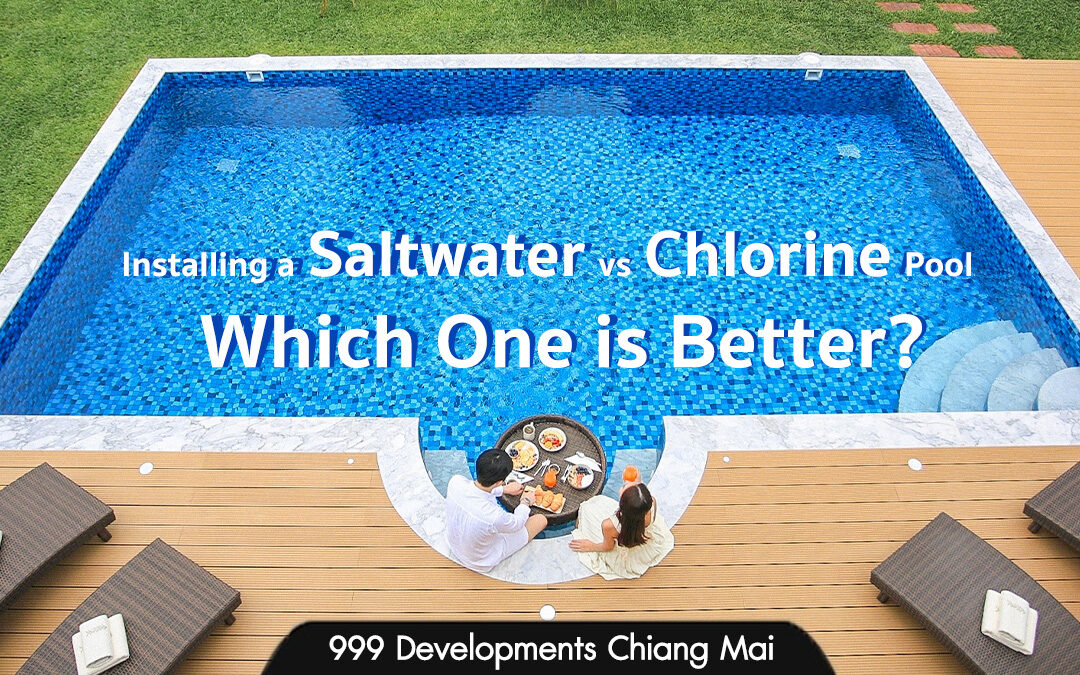
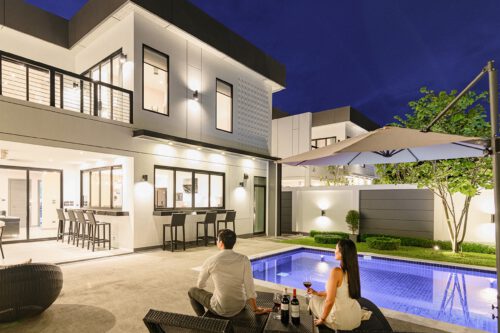

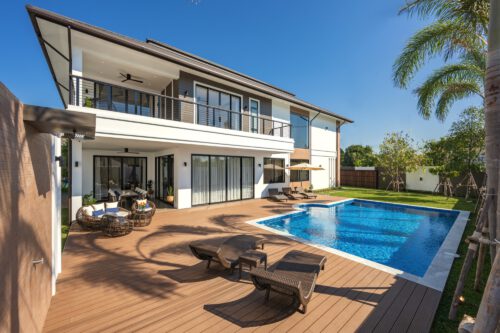

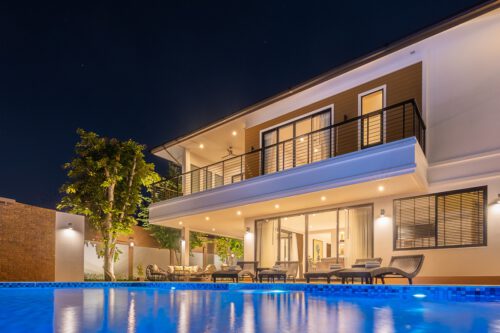
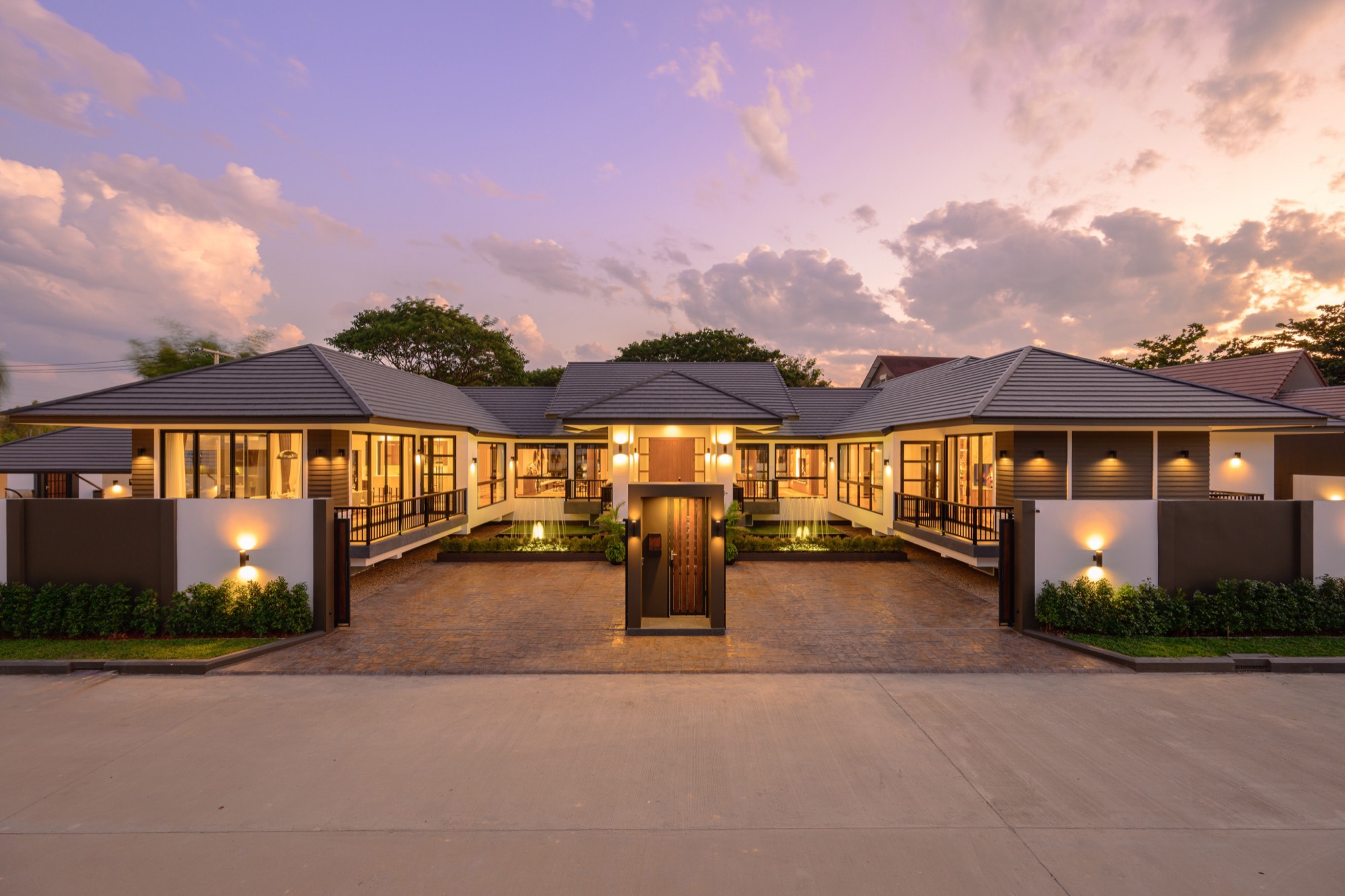







Recent Comments